Feb 2019 1st Edition
Feb 2019 1st Edition Londekile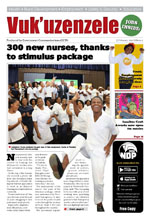
Translations
300 new nurses, thanks to stimulus package
300 new nurses, thanks to stimulus package vuyelwanNompumelelo Majola recently had to deal with the sorrow of burying her 65-year-old mother who had succumbed to a long illness.
On the day of the funeral, she received a phone call from the KwaZulu-Natal Department of Health telling her that her application to work as an Enrolled Nursing Assistant had been successful.
“I could not believe it,” she said. She had spent the past 13 years struggling to find permanent employment.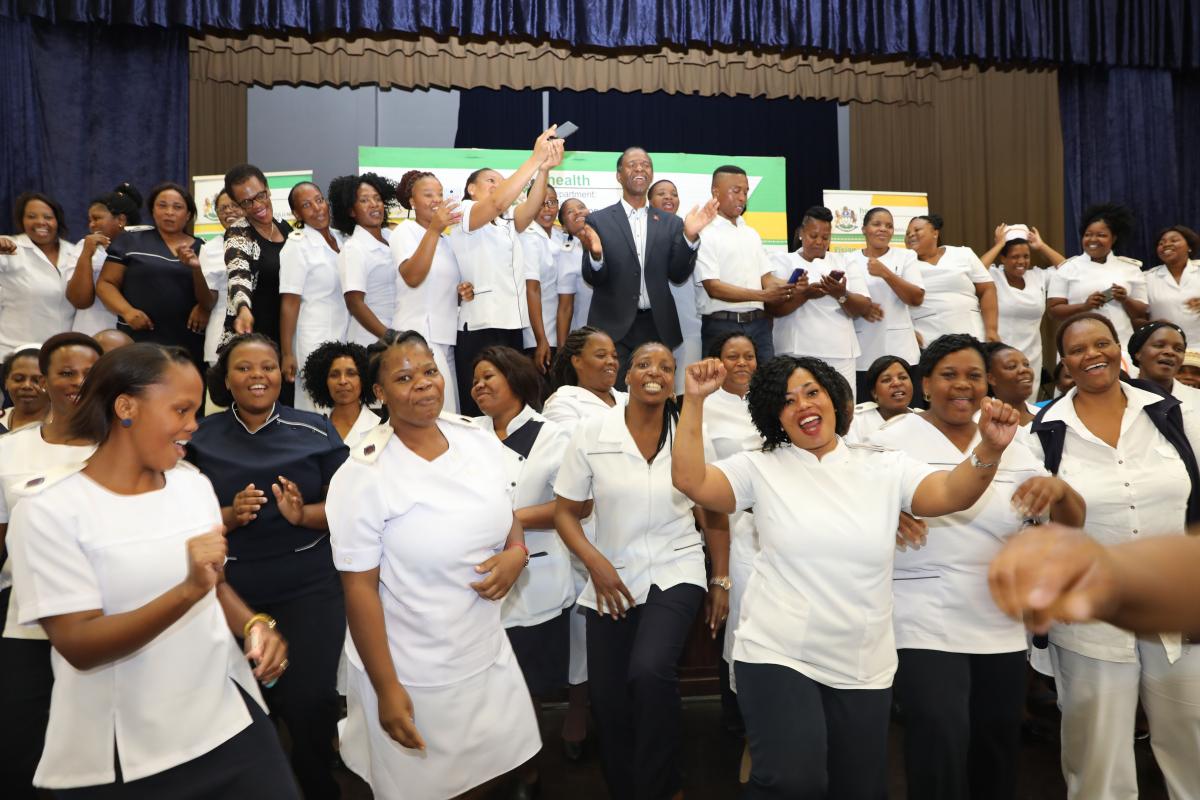
Majola who originates from Mbumbulu, now works at the Prince Mshiyeni Memorial Hospital in Umlazi in Durban.
“I’d like to thank President Cryil Ramaphosa and MEC Dr Sibongiseni Dhlomo for making our dreams come true,” she said.
The employment of the nurses was part of the stimulus package, which was announced by President Ramaphosa. It aims to boost the public health sector through the creation of more than 5 300 jobs throughout the country.
The provincial department is also finalising the appointment of porters, general orderlies, pharmacy assistants and artisans.
Another newly appointed nurse Gugu Mdlalose, from KwaMashu, who has been placed at Wentworth Hospital, said: “This was going to be my 14th year of not working since qualifying as a nurse. I am extremely grateful to Bab’ Ramaphosa and the entire health team,” she said, fighting back tears.
MEC Dhlomo expressed his heartfelt gratitude to President Ramaphosa for the stimulus package, saying that its beneficiaries will be the vast majority of the population who rely on the State for their health needs – particularly those in far-flung areas.
“Today, there are 300 families who have breadwinners. These nurses have brought tears of joy." Dr Dhlomo said the nurses have been sitting at home for over 14 years. "These are the nurses who are at the bottom of the ladder of the nursing profession, but they mean so much to our people."
"We hope by injecting 300 new nurses into the system, we’re going to bring meaning in terms of quality of service to our people.”
A guide to get NYDA funding
A guide to get NYDA funding Ursula
The National Youth Development Agency (NYDA) plays a leading role in assisting many young South Africans to be successful entrepreneurs.
It was established to address the challenges faced by the nation’s youth. Previously, the youth organisation provided loans to young entrepreneurs but changed in recent years to provide micro-finance grants for survivalist youth entrepreneurs. It also provides co-operative grants.
How much grant can I receive from the NYDA?
The grant finance starts from R1 000 to a maximum of R200 000 for any individual or youth co-operative, but for agriculture and technology-related projects, the maximum amount is R250 000.
Young people whose business ideas qualify for the Grant Programme, depending on their individual needs, will also receive some of the NYDA’s non-financial support services that include:
- Mentorship
- Business Consultancy Services
- Market Linkages
- Business Management Training Programme
- Youth Co-operative Development Programme
What are the criteria for application?
In order to meet the criteria, applicants must be between the 18 and 35 years old. They must also have skills, experience or potential skills, appropriate for the enterprise that they conduct or intend to conduct.
Most importantly, applicants must be South African citizens who live in the country and operate a business within the borders of country.
Applicants must also be involved in the day-to-day operation and management of the business with at least one or more of the members being a fulltime employee of the business, especially the main applicant.
For more information on services offered by the NYDA call 0800 52 52 52
A new dawn for SA
A new dawn for SA vuyelwanState of the Nation Address
Exactly one year ago, President Cyril Ramaphosa ushered in a new dawn for South Africa. Shortly after coming into office, the President delivered an impressive State of the Nation Address (SONA) that instilled hope, excitement and confidence in the millions of people watching around the country.
There was an intense feeling of excitement surrounding the 2018 (SONA). It is fitting that this address was delivered in the Nelson Mandela Centenary Year: not since the dawn of democracy had a South African president felt such a weight of expectation placed upon his shoulders. But President Ramaphosa’s address ticked all the boxes for the South African public. It touched on the most pressing issues facing the country; proposed some intelligent solutions; and demonstrated a true commitment towards building a better South Africa.
Focus areas of SONA 2018
Similar to many of the SONAs that came before, the issues of job creation, economic growth, poverty alleviation, education, healthcare, land reform, gender equality and fighting crime and corruption featured highly on the agenda of the 2018 SONA.
President Ramaphosa said that this period, however, was one of complete rebirth for South Africa. One which would require a new level of resolve.
“We have been given the responsibility to build a new nation, to confront the injustices of the past and the inequalities of the present. We are called upon to do so under difficult conditions.”
Creating employment
Central to alleviating poverty, job creation was one of the first issues raised by Ramaphosa in his address.
“At the centre of our national agenda in 2018 is the creation of jobs, especially for the youth,” said Ramaphosa.
 With unemployment on the rise in South Africa, the President stressed the urgent need to create jobs through a number of measures. The announcement of the Presidential Jobs Summit, which would involve discussions between the public sector, business and civil society, was warmly welcomed.
With unemployment on the rise in South Africa, the President stressed the urgent need to create jobs through a number of measures. The announcement of the Presidential Jobs Summit, which would involve discussions between the public sector, business and civil society, was warmly welcomed.
Taking place at the beginning of October, the Summit proved to be valuable in creating a blueprint for the creation of jobs. The framework agreement signed at the summit outlined more than 70 focused interventions that will, among other things, boost domestic demand, increase and broaden exports, create pathways for young people into work and develop sectors such as agriculture, manufacturing, mining and the waste economy.
With the youth particularly affected by unemployment, President Ramaphosa immediately prioritised programmes that would benefit them. The Youth Employment Service (YES) was launched within two months of SONA 2018, offering an innovative way for businesses to employ youth through paid internships. By the end of 2018, a total of 266 companies had signed up for the YES programme, and 5 500 youth had been placed.
Boosting the economy
South Africa’s economy had been experiencing sluggish growth and entered into a recession in early 2018. Investor confidence was at an all-time low, and high-potential sectors were simply not receiving the support they needed to contribute to the economy.
In line with his new dawn slogan, President Ramaphosa immediately embarked on an investment drive. He appointed four special envoys to join him in a bid to attract R1.2 trillion of investment by 2023. President Ramaphosa also travelled around the world to restore foreign countries’ confidence in investing in South Africa.
The drive culminated in the South African Investment Conference in October, where the President announced that R290 billion worth of investments had been committed to, adding to the R400 billion pledged by countries visited during the investment drive. It has been predicted that these investments will add R330 billion to South Africa’s GDP by 2024, and create up to 275 000 jobs per year.
President Ramaphosa’s economic stimulus and recovery plan was identified as another key intervention in overcoming the obstacles to improving South Africa’s economy. Announced in September, the package promises accelerated infrastructure spending, reform in the telecoms and mining sectors, joint public and private execution of projects and a simplified visa regime which will make it easier for international companies to do business in South Africa.
Rooting out corruption and strengthening governance
The President has demonstrated a strong commitment towards rooting out corruption within government and state-owned enterprises. The commission of inquiry into state capture commenced shortly after he took office, as did the commissions of inquiry into Eskom and SARS.
The changing of leadership structures in state-owned enterprises was another indication of the President’s determination to fight corruption and strengthen governance.
Aquaponics brings relief in Soweto
Aquaponics brings relief in Soweto UrsulaThe facility is an innovative and sustainable food production system that combines fish farming with hydroponic cultivation of plants in a closed recirculating fresh water system.
In the township of Orlando, Soweto, many learners go to school hungry. But this will soon be a thing of the past for hundreds of children, with the launch of a new food project that provides fresh produce and fish from an aquaponics facility.
Aquaponics is a sustainable farming method which uses the waste of farmed fish to supply plants with nutrients to grow. The fish are also harvested to provide protein-rich food to communities.
The facility in Soweto is part of a partnership between non-profit organisation INMED Partnerships for Children and the City of Johannesburg’s Food Resilience Unit, and was funded by the Mondelēz Foundation.
“Orlando has a high unemployment rate and food insecurity among its community members, because the area does not have enough land for food production. Many school children have limited access to fresh foods, affecting their ability to learn and grow to their fullest potential,” said INMED Operations Manager Janet Ogilvie.
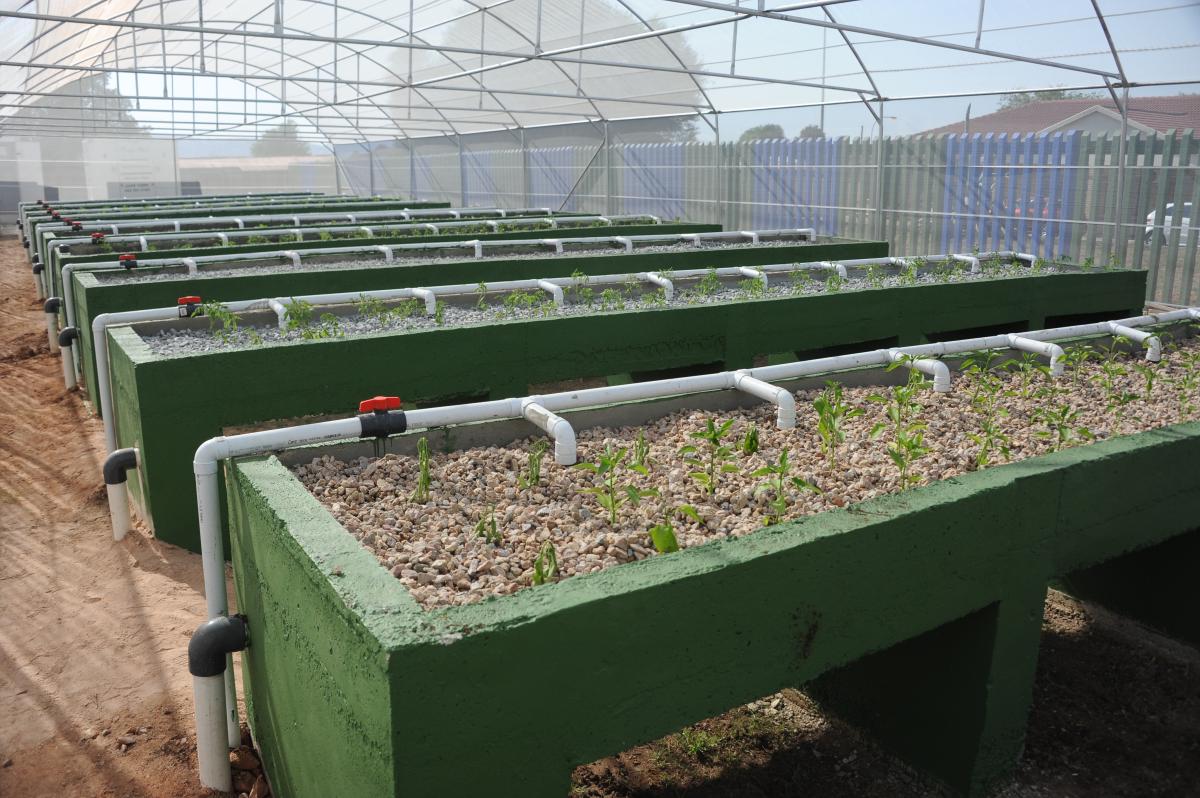 The farming method offers the perfect solution for growing food in urban areas with limited space and water. Vegetables are grown in trays stacked on top of each other, meaning that valuable ground space is not taken up. The plants clean the waste water produced by the fish, so that it can be fed back into the fish pond. This cycle means that water is never wasted.
The farming method offers the perfect solution for growing food in urban areas with limited space and water. Vegetables are grown in trays stacked on top of each other, meaning that valuable ground space is not taken up. The plants clean the waste water produced by the fish, so that it can be fed back into the fish pond. This cycle means that water is never wasted.
Schools and community members will be the main recipients of the fresh produce, while some will also be donated for patients in the neighboring Elias Motsoaledi Clinic.
The area has also been opened to community members for tours, demonstrations and informal training on aquaponics and climate-smart food production.
City of Johannesburg Member of the Mayoral Committee for Health and Social Development, Cllr Mpho Phalatse said one of the challenges identified by the City is that some patients who visit clinics do not have proper nutrition, which affects their ability to take pills.
Phalatse also said the fish farming facility forms part of a broader strategy of the City of Joburg's Food Security unit to promote and enhance urban agriculture, reduce the high levels of food insecurity and create economic opportunities across the City.
Beware: South African Social Security Agency (SASSA)
Beware: South African Social Security Agency (SASSA) Ursula
Capturing heritage through storytelling
Capturing heritage through storytelling UrsulaIn the modern world it is easy to forget the heritage of South Africa’s rich cultures. But many people have some fascinating stories to tell about the history of their families and communities. In the Western Cape, the Oral History Initiative is capturing these important stories and preserving them for generations to come.
Residents in 14 municipalities across the province have been sharing their stories through video recordings. The recordings are placed on DVD disks and provided to libraries in the area, as well as to the storytellers themselves.
Danny Titus, one of the residents who was recorded, shared his story of growing up in the small town of Worcester.
“The streets were very flat and smooth and we did everything by bicycle. I remember sitting on the front of the bike while my dad pedaled. I can speak with so much pleasure about my childhood years in Worcester and about the Worcester community,” Titus said.
David Plaatjies, a resident of Bonteheuwel just outside Cape Town, said that initiatives such as these would allow young people to recognise where they came from.
“We have a very confused generation right now, and it’s because they don’t appreciate our history and values. If we have an uninformed generation about the past, then how can we hope that their future will have direction?” said Plaatjies.
The Oral History Initiative was launched by the Western Cape Department of Cultural Affairs in 2015. Since then, 244 interviews with residents have been recorded in communities across all six district municipalities. Department spokesperson Tania Colyn said that stories from the past need to be kept alive.
“Often, the oral history in a community is lost once older generations pass away. We have a duty to keep our histories alive in our communities and within government so that future generations can celebrate our heritage,” said Colyn.
Colyn added that the initiative will be rolled out in more municipalities across the province in 2019.
Controlling traffic in the sky
Controlling traffic in the sky LondekileState of the Nation Address
The aviation sector has opened doors for young air traffic controller.
Mokgadi Mkhize (29) is an air traffic controller helping aircraft pilots ensure the safety of passengers when taking off and landing.
Mkhize works for Air Traffic and Navigation Services (ATNS) SOC Limited based at OR Tambo International Airport in Ekurhuleni.
This is a dream come true for Mkhize, who joined ATNS as part of the company’s bursary training programme in 2008, training as an air traffic service assistant at the company’s Aviation Training Academy.
“This is what I wanted to do after completing matric. I researched jobs in the aviation industry when I was in Grade 10 and developed great interest in this industry. I knew that I had to pass mathematics, physical science and English very well in order to meet the minimum requirements,” said Mkhize, who grew up in Groblersdal in Limpopo.
After completing matric, she visited ATNS’s website to apply for a job in aviation. Her application was successful and she was invited for an aptitude test and medical examination, to determine if she was a suitable candidate and was admitted into the programme.
Today her day-to-day tasks include air traffic management, monitoring information regarding weather patterns, checking equipment serviceability and communicating with pilots and other air traffic controllers in airports across the country and abroad.
“I use all the information that I read on the screen to inform, advise and instruct pilots in order for them to transport passengers safely. We communicate with the pilots using two-way radio communication. Safety is our number one priority,” she said.
Pilots need to stay updated about the weather, and they also communicate if there is a need for rerouting, changing of speed, altitude or any hindrances.
In just one hour, there could be approximately 20 aircraft that she has to deal with.
Mkhize encouraged young people to consider jobs in aviation and to research any career they would like to pursue.
For more information on bursary opportunities at the Air Traffic and Navigation Services log on to www.atns.com
Creating sweet success with honey
Creating sweet success with honey LondekileA Mthatha entrepreneur's hobby has grown into a successful business - thanks to government's assistance.
A honey co-operative which began as a way to pass time for young businessman Simthembile Nzuzo has grown and now produces about three tons of honey per year.
Nzuzo started the beekeeping and honey producing business as a hobby, with two hives at the age of 23. It has now grown into a five-member business called Nzuzo Farming Pride Co-operative with 206 hives, and is based in Mthatha in the Eastern Cape.
Nzuzo was drawn to bees while growing up in a farm house where there were regular bees beneath wooden floors.
“The bees would come out of ventilators and sometimes sting us. Even when they were removed, within three months there were bees again. I became interested and I was also good at agriculture at school.”
Nzuzo, now 29, said the business grew because of financial and training support from various government agencies, such as the Eastern Cape Development Corporation (ECDC), Small Enterprise Development Agency and the Agricultural Research Council (ARC).
“I started in 2013 with two hives and increased the number to ten.”
He adds that this was followed by training he received from ARC along with funding of R500 000 from the ECDC.
“The financial boost enabled the co-operative to distribute beyond their local community.”
Their honey is now available at various outlets in Mthatha, including Spar, Foodlovers Market, Panarottis, Mayfair Hotel and Dan’s Country Lodge.
Nzuzo said Seda also played a role in their success by supporting them with R296 000.
“We are also being assisted by OR Tambo Municipality and the Limpopo University Agro and Food Processing for our honey to be approved by the South African Bureau of Standards.”
Nzuzo plans to commercialise his business by looking for markets in other provinces since there is a demand for honey.
Duo turns trash into treasure
Duo turns trash into treasure LondekileSiyabuddy is addressing social issues such as unemployment and environmental pollution, while giving locals dignity that comes with having a job.
Siyabonga Tshabalala and Nomuntu Ndhlovu took the decision to leave their corporate jobs in Gauteng and go back home to their rural village of Steenbok in Mpumalanga, to start a business.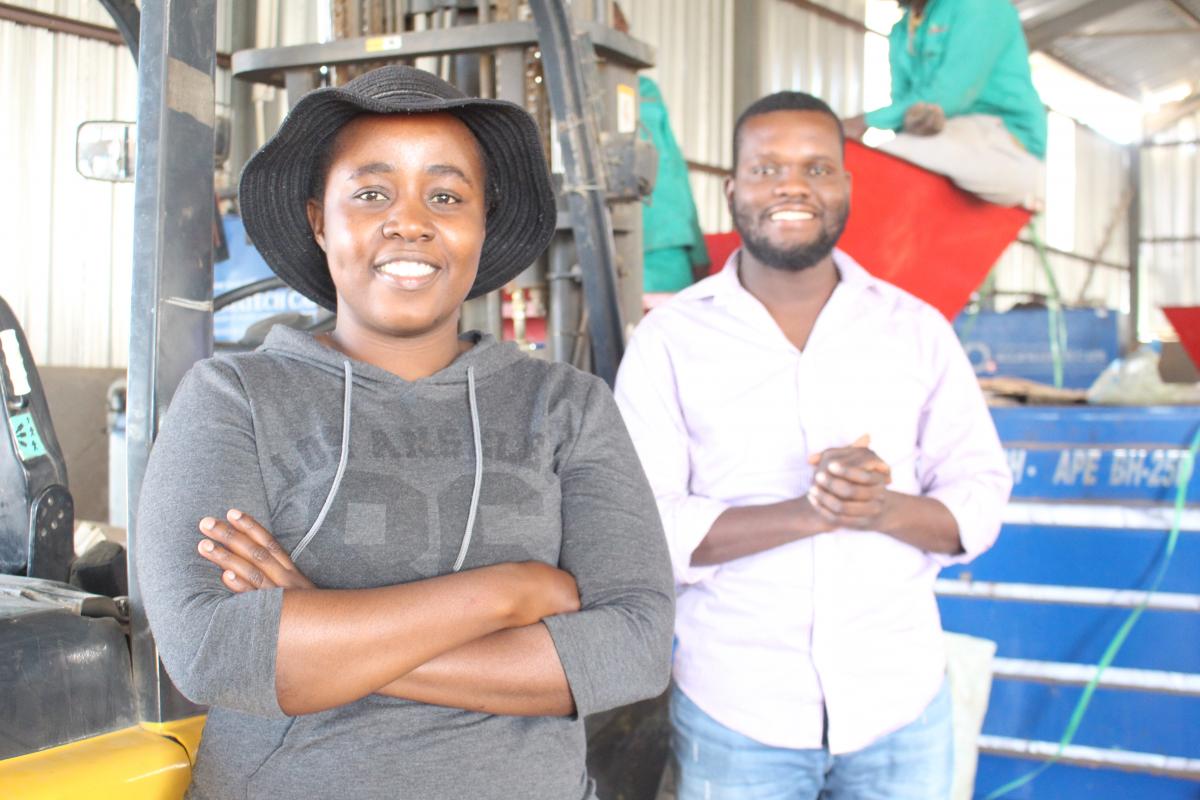
Both aged 27, the pair now run SiyaBuddy, a recycling and waste management company that has now created 18 direct jobs and 541 indirect jobs in their community in the Nkomazi Local Municipality.
Armed with just a business plan, the two young entrepreneurs applied to the Industrial Development Corporation (IDC) for a business loan to purchase machinery to get their business off the ground.
“Our application was successful and we used the loan to buy the machinery we needed to get started,” said Tshabalala, who is founder and Operations Director at SiyaBuddy.
SiyaBuddy collects waste from nearest malls and other public waste dispensing places, and then processes them in accordance with waste management handling. The processed waste is then sold to manufacturers according to their specifications. The 541 indirect employees are residents who collect additional waste on behalf of SiyaBuddy, at a fee.
The R4.6 million loan from IDC was used to purchase two baling machines, a forklift, three scales, a truck and office furniture for the start-up company. The business provides a source of income to 541 local people who work as independent waste collectors. “The business is growing and we are happy, especially because we have started to break even,” Tshabalala said.
To ensure real empowerment of their employees, the two young business partners took a decision to establish a workers’ trust for their staff and shared a 25 percent stake with their employees.
After the implementation of the workers’ empowerment initiative, the IDC provided a further R4.5 million grant to the business in order to support the empowerment initiative.
“We are going to use the grant to increase our production capacity and ease our transportation constraints by getting a bigger truck for waste transportation,” said co-founder Ndhlovu, who is also the company’s Business Development Director.
This story was supplied by the Industrial Development Corporation
First pharmacy is just the medicine for small town
First pharmacy is just the medicine for small town vuyelwanA young pharmacist made history by opening the first pharmacy in the small town of Mount Fletcher in the Eastern Cape in 2017. In doing so, he revolutionised healthcare for the small town’s many residents.
A graduate of the University of Western Cape, Vumile Mzinzi said that while small, the town is densely populated and services a number of rural villages. He explained that previously, residents had to cough up R70 for taxi fare to travel to and from Maclear – the nearest town, which is 62km away – to access pharmaceutical services.
Prior to the opening of Ithalomso Pharmacy, pharmaceutical services in Mount Fletcher were only available at the local Taylor Bequest Hospital, and these were strictly for patients.
Mzinzi graduated in 2010 and had been working as a pharmacist at Nelson Mandela Central Hospital in Mthatha before ’his life-changing decision’ to open his own business in Mount Fletcher.
He said opening the pharmacy required a lot of research and consultation to ensure that it would be viable. He chose Mount Fletcher because there was no pharmacy in close proximity and because he saw the area’s growth potential.
In investing in Mount Fletcher, the Ngcobo-born pharmacist created employment opportunities for eight residents from the surrounding villages.
The Eastern Cape Development Corporation (ECDC) helped finance and draw up his business plan which allowed him to successfully approach other financial institutions for funding.
ECDC head of risk capital Phakamisa George said the facility assists entrepreneurs with the development of their business ideas up to a stage where they are able to meet the often stringent requirements of financiers.
“This support takes the form of facilitation, feasibility studies, development and testing of prototypes, regulatory compliance costs such as Environmental Impact Assessments, water licences and business plans. ECDC is pleased that it fulfilled this obligation with Ithalomso, allowing the pharmacy to secure third-party funding,” George said.
Hotel owner reaches for the stars
Hotel owner reaches for the stars LondekileAn identified gap in the market, a commitment to the job at hand and assistance from a state agency tasked with developing, supporting and promoting small enterprises led to a bright idea becoming a booming business.
An entrepreneur supported by the Small Enterprise Development Agency (Seda) is making waves in the hospitality industry of Mthatha, after opening a hotel that turned over R1.1 million in its first year.
Mkhululi Kubukeli is the owner of the Le Pearl Boutique Hotel, which employs over 20 people and offers 19 rooms, a conference facility and bar area.
Entrepreneurship is in Kubukeli’s blood. His parents were involved in a host of activities, from selling vegetables on the street, to running a café and selling clothing. As soon as he was able to, Kubukeli started sourcing clothing to sell in his dad’s shop and in 1988, he took over the business, which is still in existence.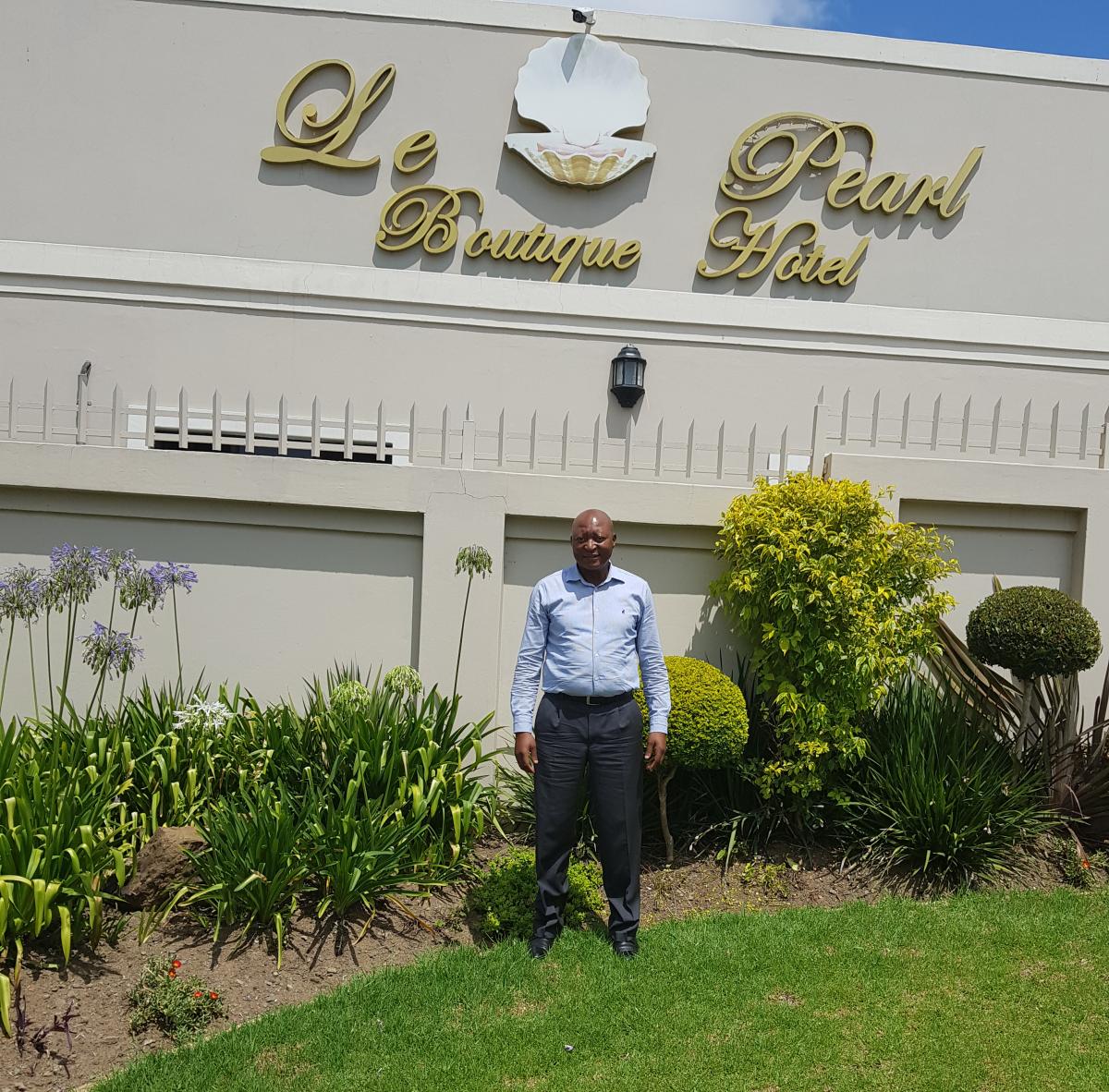
A few years ago, Kubukeli came across a small apartment block for sale in Mthatha. “I took a risk and sold a property I held in order to buy the apartment block. I trusted the idea I had for a boutique hotel and knew that I would do all I could to make it a success,” Kubukeli explained.
Kubukeli said that he was very hands-on during the building of the hotel.
“I was the project manager, the foreman, the landscaper and even the interior decorator. When I travelled, I would look at other hotels and think how I could improve on what I’d seen. I would buy books and magazines to get ideas so that I could make my dream a reality.
“The first few months were tough because I was new to the industry and no one really knew about the hotel. Fortunately, I was made aware of Seda and approached them for assistance,” said Kubukeli.
Seda assisted with all the marketing and branding of the business, from the signage, to interior branding of the hotel, directional signs and the setting up of the website.
Thanks to Kubukeli’s hard work and the support of Seda, today the hotel runs at 80 percent to 100 percent occupancy during the week.
If you’re an entrepreneur with a big business idea, you can approach Seda for support. Call the national office on 012 441 1000 or visit your nearest provincial office.
Innibos Craft Awards now open for entries
Innibos Craft Awards now open for entries tsoanaCrafters showing exceptional skill and talent can now enter the third Innibos National Premier Craft Awards.
With crafts being an important part of our artistic heritage in South Africa, the competition will showcase the creative and technical excellence of crafters in the country.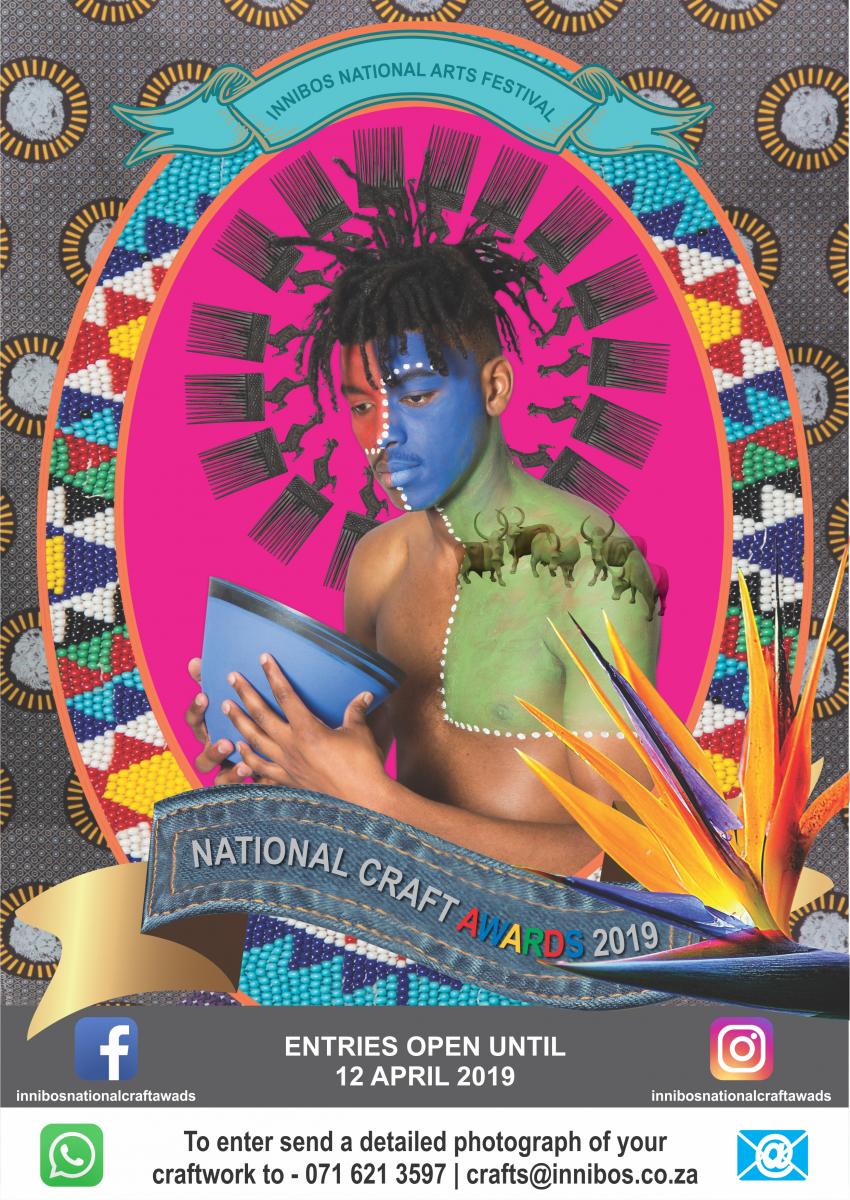
The competition forms part of the Innibos National Arts Festival which takes place in Nelspruit each year and attracts thousands of visitors.
The winning crafter will take home R50 000, the first runner-up R20 000 and the second runner-up R15 000.
How to enter
The organisers of the awards have made the entry process as simple as possible.
Entry is free. All artists in the craft sector are invited to submit entries in the following disciplines: ceramics, beadwork, wirework, wood, jewellery, paper, fabric painting and printing, quilting, leatherwork, pewter, glasswork, embroidery and mixed media.
To enter, take a photo of your entry next to a matchbox to show size of scale. You can email your photo to crafts@innibos.co.za, or send it to 071 621 3597 via MMS or WhatsApp. Remember to include your name, the town in which you live and your contact details.
The closing date for entries is 12 April 2019.
Entrants who have not heard from the organisers within 30 days of the closing date must consider their entries unsuccessful in making the shortlist for final judging.
Sixty entries will be shortlisted and put forward for final judging. The adjudication panel will include experts in their field who will ensure the integrity of the competition.
The winners will be announced at an awards evening on 23 June 2019.The 60 finalists must be available to attend this awards evening. All 60 shortlisted entries will be displayed at an exhibition which will be open to the public during the Innibos National Arts Festival.
For information, you can WhatsApp Jan Bhuda on 071 621 3597, or email John Anthony Boerma at artaid@lantic.net.
KZN beadwork takes centre stage
KZN beadwork takes centre stage tsoanaOver 300 crafters are smiling all the way to the bank, thanks to a successful upliftment programme.
What started out as an initiative to generate income through beadwork for locals affected by HIV and AIDS in an area called the Valley of 1000 Hills in KwaZulu-Natal, has now grown into a lucrative export business.
Woza Moya is a non-profit organisation founded in 2002 to equip locals infected or affected by HIV and AIDS to generate income.
The project acts as an agent for about 300 crafters in the area exporting local work to countries such as Netherlands, France, and Australia.
Woza Moya offers training to the crafters and a market for their craft through an online shop which sells to overseas clients.
Woza Moya Project Manager Lungile Manyathi said the organisation works with community members from the Valley of 1000 Hills which includes areas such as KwaNyuswa, Shongweni Dam, Molweni, Inchanga, Skelekehleni, Cato Ridge and Marianhill.
Manyathi adds that finding employment for people who are involved in this initiative was a challenge because some of them have no marketable skills and have never been employed.
One of the Woza Moya crafters Beauty Elefu who joined the project after the death of her husband said she is very happy to be part of the project.
“I use the income that I generate from the sales to support my six children. I bead everything at home and visit the Woza Moya centre on Fridays to hand in my work and collect new orders for the following week,” said Elefu.
Manyathi added that the crafters work very hard to develop a unique style.
“To stay viable, we have had to come up with new designs which make our beadwork an exportable commodity. We have tried very hard to develop our own style,” Manyathi added.
The initiative also recently won the title of Exporter of the Year at the KwaZulu-Natal Export Awards hosted by the Durban Chamber of Commerce and Industry.
KZN reviving the manufacturing industry
KZN reviving the manufacturing industry LondekileState of the Nation Address
What started out as a dream to create employment and to venture into the textile industry, has become a reality for Sizwe Mbanjwa, the Chief Executive Officer of KwaZulu-Natal’s biggest black-owned textile firm.
Mbanjwa’s company, Africa Bespoke Apparel factory is situated in Verulam, north of Durban and has been operational from May 2018. It is barely a year old but has already created about 700 jobs and is making an impact in the textile industry.
“It is humbling that our company has the capacity to create the well needed jobs for the people of Verulam. On top of this we have not even passed the year mark but we are seeing opportunities of growth,” said Mbanjwa. 
Africa Bespoke Apparel factory has the capacity to handle over 235 000 garments per month and is equipped with state-of-the-art technology which makes it able to compete internationally.
The company was part of the Department of Trade and Industry’s Black Industrialist Programme and received a R35,5 million grant. The project is also co-funded by the KwaZulu-Natal government’s Growth Fund.
Mbanjwa added that receiving the funding from government made it less challenging to get his business off the ground.
“The funding allowed us to be more competitive in the textile market by being able to acquire the necessary machinery. As it stands, we are looking into accessing markets all over Africa and internationally.”
KwaZulu-Natal MEC for Economic Development, Tourism and Environmental Affairs, Sihle Zikalala said the manufacturing industry has in the past succumbed to severe international pressure that led to job losses.
The factory, he said, will be the link between fashion houses and the retail market.
“We are pleased to report that government, in partnership with private sector stakeholders, are working together to rebuild our manufacturing capacity in the clothing and textile industry. Government continues to avail financial assistance and other support to make the domestic clothing and textile industry more competitive,” the MEC said.
Companies, including the Foschini Group, Mr Price and Edcon Group, have also welcomed the commissioning of the company, which has also started receiving orders from government departments, including the South African Police Service (SAPS).
Did you know
During the 2018 State of the Nation Address President Cyril Ramaphosa announced that government was going to address the decline of manufacturing which affected employment and exports.
He said there was a need to reindustrialise manufacturing at a pace that draws millions of job seekers into the economy.
KZN’s hospitality queen treats guests like royalty
KZN’s hospitality queen treats guests like royalty LondekileA love of people motivated Thembi Maseko to open the four-star Umqhele Bed and Breakfast in an upmarket area in Richards Bay.
Maseko (58) said when working as a teacher years ago, she had the opportunity to visit a hotel and fell in love with the hospitality industry. As a result, in 2007, she resigned from her job and used her pension money to buy a property that she converted into an elegant guesthouse.
This leap of faith paid off. Her guesthouse has gone from strength to strength and recently won the overall prize of R50 000 in KwaZulu-Natal’s Imbokodo Iyazenzela Women in Business Awards hosted by Ithala Development Corporation.
“I invested a lot of money into the business because I want my guests to feel like they are kings when they're here. Hence our motto: ‘Be like a king for a day’,” she said, adding that time and energy is also regularly invested into staff training.
The success of Umqhele has enabled Maseko to create permanent employment for 12 people. “My employees are my motivation to work even harder. When I feel like throwing in the towel, I just think of them and the families they support through this business,” she said.
Imbokodo Iyazenzela was launched in 2015 and has reached over 3 000 women in 16 towns across KwaZulu-Natal to date. The initiative is designed to help micro-level enterprises grow and sustain their businesses. Ithala group reputation management manager Sithandiwe Dimba said Ithala recognises and rewards business success in the SMME sector, which he said is critical to finding solutions to joblessness and poverty. “Across the province, we found that women in SMMEs faced similar challenges, such as access to markets, finance, business support and marketing and sales,” said Dimba.
In 2018, Imbokodo Iyazenzela received 568 entries, a 25.8 percent increase on the previous year and nearly three times the 201 entries in 2016. Entries were received from sectors across the province, including agriculture, agro-processing, finance, tourism, hospitality and logistics.
Land beneficiaries roar with pride
Land beneficiaries roar with pride LondekileState of the Nation Address
The community of Mnqobokazi in Umkhanyakude, in KwaZulu-Natal (KZN), never thought the day would come when they would be able to return to the land they lost to apartheid in 1953.
The land of their birth was turned into a game reserve by white farmers and community members were scattered across KZN until they came together to lodge a land claim in 1996.
In 2007, the land claim was settled by the provincial Land Claims Commission and the 5 200 hectares of land was returned to the community. Some pockets of land could not be returned to them however, as they had become protected. Affected families received R10 000 each in compensation. 
Mnqobokazi Trust chairman Jabulani Nxumalo said at one point the community thought of giving up because of how the restoration process was dragging on.
Eventually, however, the land was returned and the community entered into a 36-year lease agreement with Phinda Game Reserve. The reserve leases the 5 200 ha of land for R260 000 per month.
“As part of this agreement, the game reserve is obligated to transfer skills to community members by giving them employment and some community members must be put into managerial positions so that when the lease is up, it will be easy for us to fully run the game reserve on our own. A general manager is from our community, as is the hospitality manager,” he said.
Nxumalo said the game reserve has employed and trained over 70 people from the community in hospitality. He said the community is benefitting greatly from this agreement and as a result been able to pay R1.4 million to Eskom to connect electricity to 124 households in their community.
“We have built a hall and a multi-purpose centre and we give bursaries to 20 matriculants within the community each year. All 226 land claim beneficiaries are provided with a funeral plan and every year the beneficiaries receive a sum of money to split among themselves,” he said.
Did you know
- President Cyril Ramaphosa announced in his 2018 State of the Nation Address, plans to accelerate the land redistribution programme to bring more producers into the agricultural sector and to make more land available for cultivation.
- Last year government went on a public consultation around the country on the topic of expropriating land without compensation. This was followed by the President setting up a committee tasked with amending the constitution to expropriate land without compensation.
Mamburu’s journey: from intern to middle manager
Mamburu’s journey: from intern to middle manager LondekileState of the Nation Address
A humble internship can open doors to an exciting and successful career if you make a name for yourself at work.
When Mishumo Mamburu (37) applied for an internship at the then Department of Education 13 years ago, he had no idea that he would one day be a middle manager in government.
It was a year after he moved from Venda in Limpopo to Johannesburg to look for job opportunities after obtaining his Bachelor of Agriculture from the University of Venda.
His application was successful and in 2007, he started working as an intern in the rural education department.
His mentor believed in him and trusted him with important tasks, including developing strategies and implementation plans. “The level of faith he had in me is what equipped me to be the person that I am today,” he said.
While he was still an intern, the department advertised for a junior manager position and his mentor advised him to apply for it. However, he was offered a senior administration officer post instead and he was advised to study further and obtain a qualification more relevant to the education sector.
Mamburu enrolled for a Bachelor of Commerce in Management with the University of South Africa in 2009 and has not stopped studying since. He is currently in his second year of studying for a Master of Commerce degree and has acquired a number of certificates over the years, including a certificate in labour law and business process management.
Eventually, Mamburu was appointed acting assistant director in the Department of Education, Human Resource Planning, Provisioning and Monitoring.
“I occupied that post from 2012 to 2014 when I was appointed the deputy director responsible for teacher supply in the now Department of Basic Education,” he said.
“I wasn’t expecting to be where I am today because the internship was for just 12 months. So I thought I would have to look for a job elsewhere,” he said.
Mamburu’s career journey is proof that if you work hard as an intern, you might just make a name for yourself at a workplace.
Did you know
- From 1 April 2019, work experience will no longer be a requirement for recruitment for entry level jobs in the public sector. This is part of governmentís efforts to address youth unemployment.
- The focus of recruitment will now be on minimum academic qualifications obtained from appropriately registered training institutions in terms of the National Qualifications Framework Act.
NSFAS keeps Cibi’s dream alive
NSFAS keeps Cibi’s dream alive LondekileState of the Nation Address
Free higher education and training for students from poor and working-class families is becoming a reality in South Africa that has left many a youngster sighing with relief.
This time last year Azile Cibi thought his university days were over because he could not afford to pay his tuition fees. 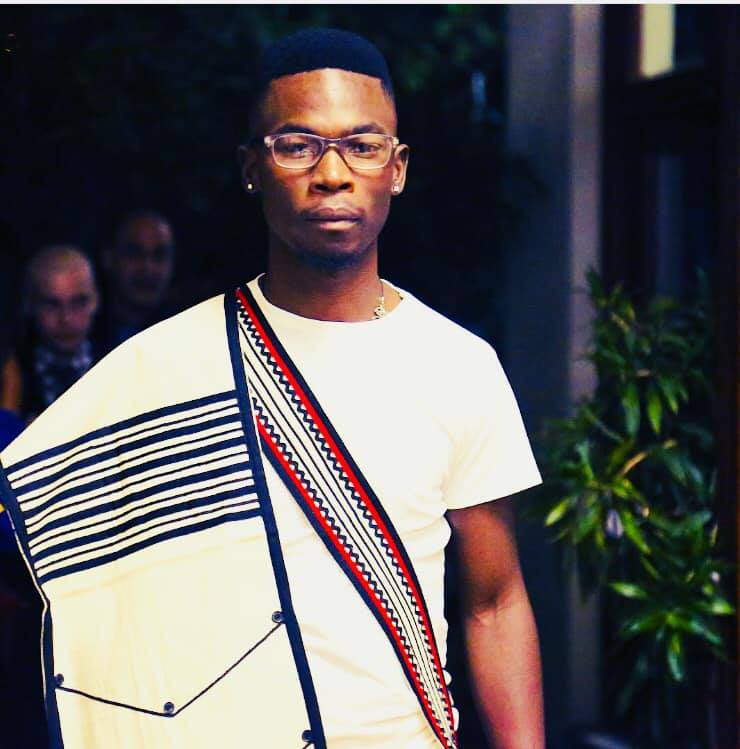
He owed Rhodes University over R39 000 from the 2017 academic year and could not afford to pay the additional R42 000 needed to continue his fine arts and history degree.
But his hope was restored when his application to the National Student Financial Aid Scheme (NSFAS) was successful, and now he is a third-year student with a bright future.
He told Vuk’uzenzele that NSFAS’s financial aid came at a time when he was on the verge of giving up.
“The funding has changed my life. It has given me a chance to work towards my dream,” said Cibi, who hails from Makhanda in the Eastern Cape.
Cibi’s mother is single and works as a street vendor.
“I have to study and work part-time so that I can help support our family,” he said, adding that he intends obtaining his PhD and becoming a lecturer.
“As soon as I get a job, I would like to pay back what is due to NSFAS so that other students can get aid.”
He has welcomed the introduction of fully subsidised free higher education and training for poor and working-class South African undergraduate students. This extended aid started in 2018 and impacted students in their first year of study at public universities and technical and vocational education and training colleges.
“I believe that the only way to build a strong nation is to educate its people,” he said.
In 2018, government expanded the financial aid scheme to students from families with a gross annual income of less than R350 000. This is being phased in for first-time entry students over a five-year period.
More students in higher education institutions
In 2018, President Cyril Ramaphosa announced in his State of the Nation Address that there were almost a million students enrolled in higher education - up from just over 500 000 in 1994.
Online job applications made easy
Online job applications made easy vuyelwanThrough the launch of e-Recruitment, government has demonstrated its commitment to uplifting the lives of youth and graduates.
Job seekers will soon be able to apply for government jobs online.
This, through the e-Recruitment system that was launched by Public Service and Administration Minister Ayanda Dlodlo, recently.
The Minister said the e-Recruitment system is being phased in, starting with the Department of Public Service and Administration (DPSA) and will soon be rolled out to the entire public service.
“The e-Recruitment system is part of a government-wide process to make it simpler and easier for people, especially the youth, to apply for job opportunities in the public service.
“The process will also include a review of regulations for all entry level posts in the public service to allow the recruitment of new entrants without prior experience into entry level jobs,” Minister Dlodlo said.
She said it is indisputable that the current recruitment processes are cumbersome for job-seekers and government departments have not moved or evolved with the changing technological advancements.
“For job-seekers, the new e-Recruitment system will be beneficial because it is web based and accessible from different locations for all job seekers who submit applications to a centralised database,” she said.
The Minister said the system will enable the applicants to post their CVs and supporting documents once - and the process will save them the cost of making multiple copies for applications.
“It is important to stress that applications for jobs in the Public Service will still be accepted through the physical Z83 forms to accommodate those who do not have access to the internet and will also be available in an online digital format to allow for a quick and easy application process for those who have internet,” she said.
The Minister said a benefit for government departments is that the system allows them to advertise posts electronically and therefore reduces the cost of current methods of advertising in newspapers.
This innovative process is a collaborative effort between the Department of Public Service and Administration and the Gauteng Department of e-Government.
The Gauteng Department of e-Government provides the required resources to operate the system, while the State Information Technology Agency is partnering on the provision of technical and infrastructure development skills.
SAnews.gov.za
Political prisoners’ remains handed over to families
Political prisoners’ remains handed over to families Ursula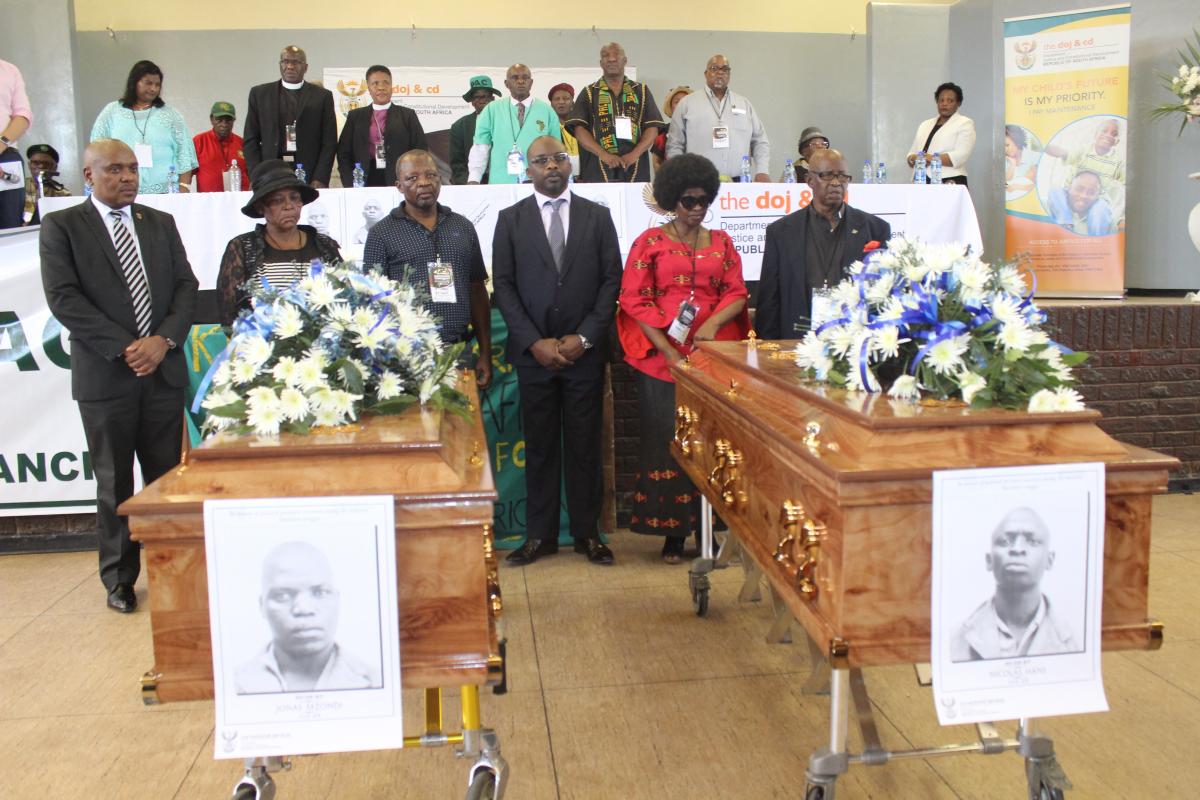 Wowo Mzondi was only four-years- old when his father was sentenced to death by the apartheid regime for the killing of a white shopkeeper in Paarl, Western Cape, as part of the missions undertaken by the Pan Africanist Congress (PAC) combatants in 1967.
Wowo Mzondi was only four-years- old when his father was sentenced to death by the apartheid regime for the killing of a white shopkeeper in Paarl, Western Cape, as part of the missions undertaken by the Pan Africanist Congress (PAC) combatants in 1967.
As a result of growing up without a father, Mzondi – now aged 55 and unemployed – says he had lost out on many opportunities in life, including an education. “It saddens me to think that had my father been alive, my struggle to survive would have been lessened,” said the married father of four.
For Mzondi there was joy and sadness as he accepted the remains of his late father, Jabavu Mzondi. The remains of Wowo Mzondi and Gqibile Hans were finally handed over to their respective families in Mbekweni, Paarl, by Justice and Correctional Services Minister, Advocate Michael Masutha, recently.
Mzondi said that he is happy that his family can now find closure as the remains of his father have been brought home after five decades of suffering, all thanks to the department’s Gallows Exhumation Project.
“We would like to sincerely thank the department for a job well done. We will now have a final resting place for him, which is important for us on the road towards healing,” he said.
The Gallows Exhumation Project involves the exhumation, handover and reburial of the remains of 83 political prisoners who were hanged at the Kgosi Mampuru Gallows and buried in unmarked graves.
The Hans family was also grateful to finally receive the remains of their loved one. Norman Hans said his brother Gqibile Hans was an ambitious individual who adored education. “My brother was only 26-years-old when he was arrested in 1961; he is survived by twin sons who live in Lesotho,” he said.
Hans and Wowo Mzondi were executed in 1967 following the killing of Maurice Berger, a white shopkeeper in Paarl, as part of the missions undertaken by the PAC Task Force which they belonged to as armed combatants.
Hans and Wowo Mzondi were exhumed from pauper graves in the Mamelodi and Rebecca Street cemeteries in Tshwane in August 2017 and March 2018, respectively, by the National Prosecuting Authority’s Missing Persons Task Team. This was done in partnership with the Truth and Reconciliation Commission (TRC) Unit of the Department of Justice and Constitutional Development which ensures implementation of all TRC recommendations.
Addressing mourners and the Paarl community, Minister Masutha said: “This tells us an important message about the place that Mr Hans and Mr Mzondi and their fellow Paarl activists occupy in South Africa’s history. They are heroes of the freedom we enjoy today.”
SONA looking to the future
SONA looking to the future vuyelwanState of the Nation Address
President Cyril Ramaphosa will deliver his State of the Nation Address (SoNA) at the annual opening of Parliament in Cape Town in February.
He will address a joint sitting of the two houses of Parliament - the National Assembly and the National Council of Provinces.
Every year, the President delivers the SoNA, which provides an opportunity for the nation to take stock of the country’s domestic situation and foreign relations, and for the President to share government’s plan of action for the year ahead. 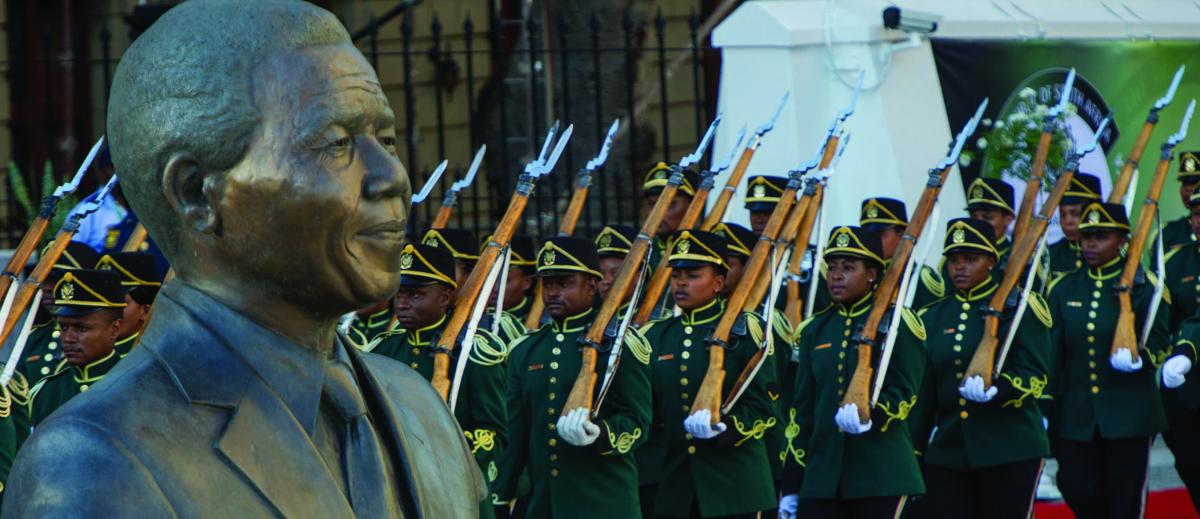
The President also uses the opportunity to report on the progress that government has made since the previous SoNA.
The SoNA is divided into three parts. The first is the important public participation role in the ceremony when the Civil Guard of Honour welcomes the President and his guests as they walk along the red carpet. This is followed by a state ceremony, which includes a 21-gun salute and the South African Air Force fly-past and finally the official address by the President.
Members of the South African National Defence Force will line the route that the President takes to Parliament. The Military Guard of Honour participates in the ceremony and the military band plays South Africa’s national anthem.
The SoNA is one of the rare occasions when the three arms of State, namely the Executive represented by the President, Deputy President and Ministers; the Judiciary, represented by the country’s Chief Justice and the Judge Presidents; and the Legislature, represented by the Members of Parliament gather in one place. The provincial and local spheres of government are also represented.
In a general election year such as 2019, two SoNAs are delivered.
South Africa is a nation at work
South Africa is a nation at work vuyelwanUnion Buildings
It’s a new year and by now we should have all settled into our daily routines, energised to make 2019 another successful year.
It is time to roll up our sleeves and work together to make our country better for all who live in it.
To kick-start the work of government for the year, I will be sharing government’s plans in the upcoming State of the Nation Address. 
Traditionally, the State of the Nation Address sets the agenda for what government – working with all sectors of society - will be focusing on in the year ahead
This year is a very special year. It is the year in which we celebrate 25 years of our hard-earned democracy.
Twenty-five years later South Africa is a better place. We are a nation united in diversity, and we are working together to overcome the injustices of the past while charting a way forward that will ensure growth and prosperity for our nation.
One of the key priorities of government is alleviating poverty by making it possible for the economy to grow and for businesses to create jobs in all sectors of our economy.
The reality remains that more than nine million South Africans – nearly the population of Gauteng - are unemployed. Out of every 10 young South Africans, four are neither in employment, nor in an education or training institution.
Government is working with business and civil society to change this by encouraging and creating the right environment for greater investment in our economy by South African enterprises and international investors.
For several years, investment in the economy has stagnated, stifling growth and job creation.
To address this, I convened a jobs summit and an investment conference in October 2018, with government, business (domestic and international), labour and community-based organisations focused on making South Africa grow.
Both gatherings yielded positive results which will in the coming months and years make a difference in the lives of South Africans and in the fortunes of South African and international enterprises.
At the end of the Jobs Summit, we signed agreements that have the potential to create about 275 000 jobs per year.
The framework agreement and the Summit deliberations provide hope and dignity to unemployed South Africans and inject new energy into the economy, alongside government’s economic stimulus and recovery plan.
The inaugural South Africa Investment Conference managed to secure nearly R290 billion worth of investment announcements for the country. These investments will assist our efforts of growing and building an economy in which all South Africans have a meaningful stake and from which all of us can benefit.
An important part of this meaningful stake is our effort to return South Africans to land from which we were removed under colonialism and apartheid.
Government is committed to returning land to people – and people to land - in an orderly and lawful manner. We will not allow illegal occupations.
Land reform is a conversation that aims to advance economic development, agricultural production and food security.
We will continue to promote a range of land ownership forms – public, private, cooperative, family and communal.
Land claims must be processed faster, title deeds must be provided quicker, and housing projects must be completed on time.
One of our national landmarks in the 25th year of our democracy will be the provincial and national elections that will be held in the coming months.
I call on all registered voters to make their voices heard in these elections, as the future of our country is in your hands.
I want to urge young people in particular, to make your mark in the election. Your vote is your power and your influence. Do not deny yourself the opportunity to move South Africa forward.
The right to vote must never be taken for granted. Many people lost their lives and made enormous sacrifices in order for us to live freely and have a say in who leads our nation.
The elections give all of us the opportunity to be active participants in improving the lives of South Africans. It allows voters and those seeking election to act in the best interest of our country.
Let’s make our mark and exercise our democratic right.
Let’s grow South Africa together!
Spinach muffins boosts Lamontville youth
Spinach muffins boosts Lamontville youth LondekileYoungsters from Lamontville in KwaZulu-Natal are growing a brighter future for their community by producing spinach muffins.
Youth Empowerment RMS director Sphelele Memela (26) told Vuk’uzenzele that the five-member co-operative was established in 2013.
“All five of us come from disadvantaged family backgrounds and our parents could not afford to give us the education that we wanted,” he said. However, they were determined to improve their lives and their common dream of being employers instead of employees drove them to establish their own small business.
“Many people in our community want fresh vegetables but they cannot afford to go to shopping complexes all the time just to buy spinach, so we saw a gap in the market and thought we should plant spinach and sell it at an affordable price,” he added.
In 2015, the co-operative received R31 000 in grant funding from the National Youth Development Agency (NYDA) and bought staff uniforms, hand tools, seed, compost, weed controller, a small greenhouse and other agricultural equipment. This has helped their business to grow and it has won a number of competitions and awards, thanks to business support given to the members by the NYDA, Business Support and the South African National Apex Cooperative Ltd.
Now their co-operative not only sells spinach to local buyers but also bakes spinach muffins for a retail store and a restaurant in Ballito near Durban. They also supply spinach to the retail store.
“Our company is finalising deals to supply our products to other retails stores around Durban,” Memela said.
He said the co-operative donates 30 percent of its products to disadvantaged residents in Lamontville in order to give back to the community.
He encouraged young people to create jobs for themselves instead of applying for jobs so that they can change their own lives and that of the people around them.
The Voting Process
The Voting Process Ursula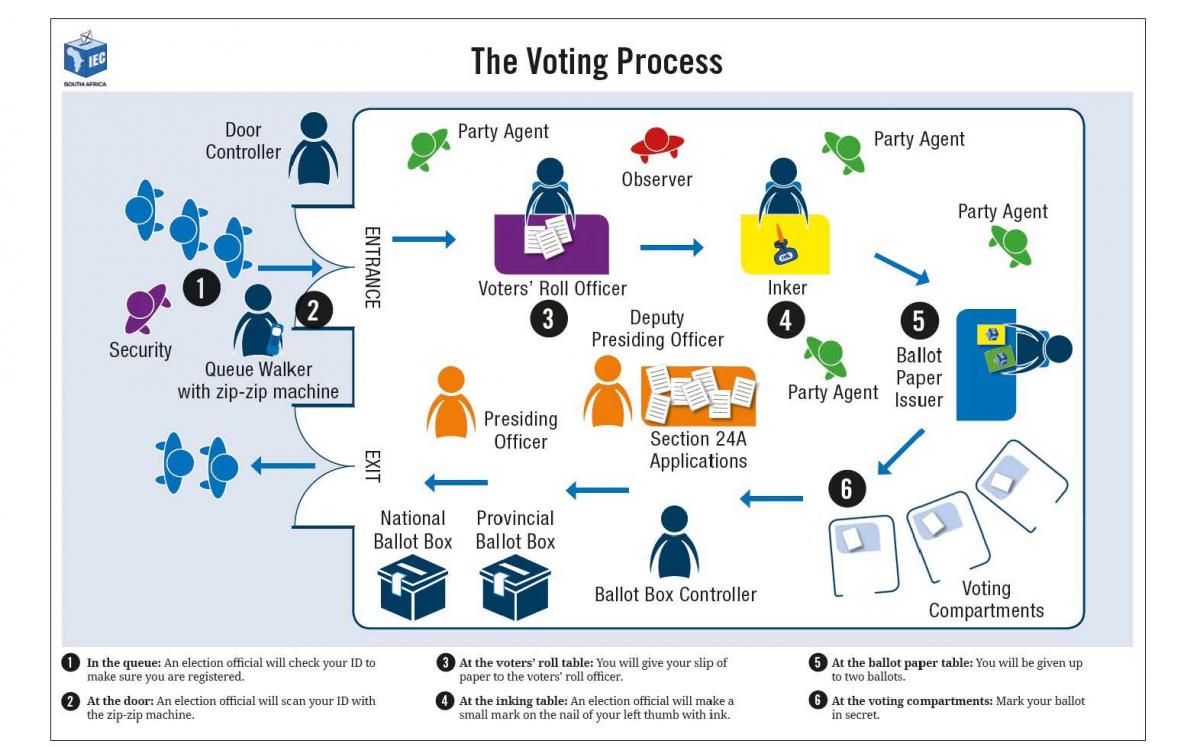
This month in history
This month in history Londekile1 February 1997: The Choice of Termination Pregnancy made legal
From February 1 1997, the Choice on Termination of Pregnancy Act was made legal by the Parliament of South Africa, granting unrestricted access to abortion to any woman no more than 13 weeks pregnant. The act was dubbed one of the most “liberal abortion laws in the world”.
The Choice on Termination of Pregnancy Act was enacted to protect reproductive health rights by providing safe abortion access. Under democracy, the right to abortion access is protected by the Constitution and Bill of rights, which says reproductive rights are a basic human right. (Sahistory.org)
What young people expect to hear during SONA
What young people expect to hear during SONA vuyelwanState of the Nation Address
As President Cyril Ramaphosa prepares to address the nation on government’s plans to improve the lives of South Africans and to reflect on the past year, Vuk’uzenzele took to the streets to hear what young South Africans expect him to say:
“I am expecting the President to be clear about how government is going to execute the issue of expropriation of land without compensation because some of us are in the dark about how this is going to be done and where we stand as a nation. I would also like the President to give feedback on the progress that government is making in fighting corruption. Corruption sets us back as a nation.”
“I am expecting the President to outline government’s plans to allocate more funds towards education because there are a lot of young people who would like to study but cannot afford fees. The President must also give us feedback on what the government is doing to address lack of transparency in the National Student Financial Aid Scheme. I also think that government bursaries should be prioritised for students who come from disadvantaged family backgrounds, but do well academically.”
“I look forward to listening to the President share his plans to improve Technical and Vocational Education and Training (TVET) colleges. Government must also partner with legal private colleges and subsidise them in order to open up more opportunities for young people. The public TVET colleges are not enough to accommodate the number of youth in our country. A lot more still needs to be done to do away with the stigma that people attach to TVET colleges. Not everyone wants to go to traditional universities but young people get discouraged to enrol at TVET colleges due to the stigma. The President must also talk about plans to support budding entrepreneurs and not only give them a platform to showcase their work.”
Young doctor's dream comes true
Young doctor's dream comes true UrsulaDr Nhlanhla Mngadi treated a number of patients at RK Khan Hospital in Durban, KwaZulu-Natal, for the very first time as a medical intern, within the family medicine unit.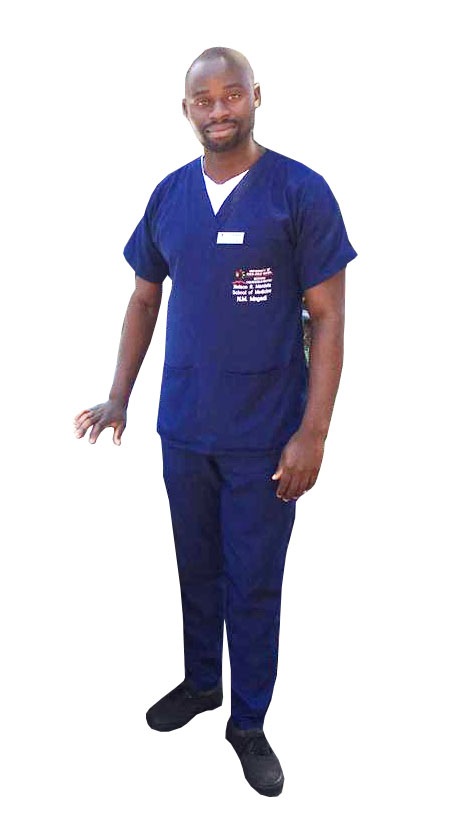
This was a journey that started in 2011, when he and hundreds of other poor South African children left their homes to study medicine in Cuba, a country with a strong focus on health education and disease prevention rather than cure.
Since 1997, 940 KwaZulu-Natal medical students have been enrolled in Cuba, thanks to an agreement signed by former Presidents Nelson Mandela and his Cuban counterpart Fidel Castro. The programme was pioneered by the then Minister for Health, Dr Nkosazana Dlamini-Zuma. It has since produced 127 doctors; while 438 are still studying in Cuba; and 291 are now completing their studies in South Africa.
Now, Dr Mngadi’s biggest mission is to build his 64 year-old mother a home that she can be proud of. Commenting on his move to RK Khan Hospital and his recent first day at work, Dr Mngadi said: “I am extremely excited. I’m over the moon, short of words. I’m also a bit nervous because I’m not sure what to expect." Dr Mngadi said there is a big responsibility on his shoulders. "Working as a doctor is unlike being a student. There’s nervousness, which I guess is normal." He said he was grateful for the programme, adding that when he left for Cuba in 2011, he did not know what lay ahead.
"We’ve come a long way, now we must go back to our communities and serve them.”
Mngadi is the first to acknowledge that had it not been for the RSA-Cuba Medical Training programme, becoming a doctor for a child from an impoverished home like himself would have only been but a pipe dream.
“I am very grateful for the support from our government, especially in KZN. They supported us a great deal when we were in Cuba.”
KwaZulu-Natal Health MEC, Dr Sibongiseni Dhlomo, said Dr Mngadi was a doctor today because of that Government support. “We wish him and many others like him everything of the best.”
Youth Employment Service already changing lives
Youth Employment Service already changing lives vuyelwanState of the Nation Address
The Youth Employment Service (YES) was one of the key programmes announced in President Cyril Ramaphosa’s 2018 State of the Nation Address.
This programme is already giving previously unemployed youth the opportunity to work through paid internships.
More than 250 companies signed up, committing to place more than 5000 young people, who receive a minimum salary of R3 500 per month.
One such youth is who is part of the programme is 32-year-old Khensani Khoza, who was raised by a single mother in Hazyview, Mpumalanga.
After finishing matric and completing an IT certificate, Khoza was struggling to find a job.
“Finding a job was very difficult. I applied to many companies without any luck. I ended up applying to YES. This gave me the opportunity to work as a call centre agent at the Good Works Foundation,” says Khoza.
Khoza started her new job in October 2018, and is now a qualified call centre agent. She says that the experience has been life changing.
“I am now employed, and every month end I am proud to receive my own money. YES showed me that there is someone out there that believes in me. I am who I am today because of YES,. I am able to interact with people and tell other youth about YES and how it can help them change their life,” Khoza said.
Apart from gaining work experience, Khoza has also been able to benefit from valuable learning material through YES.
“So far, I have been able to access the YES work readiness material and have been really enjoying it and learning a lot about myself and the working world. In the future, I want to keep gaining work experience and knowledge.”
How to apply for the YES programme?
If you are between the ages of 18 and 35, and have been unemployed for more than 6 months, then you are eligible to apply for placement through the YES Programme. You can register online at yes4youth.mobi.
